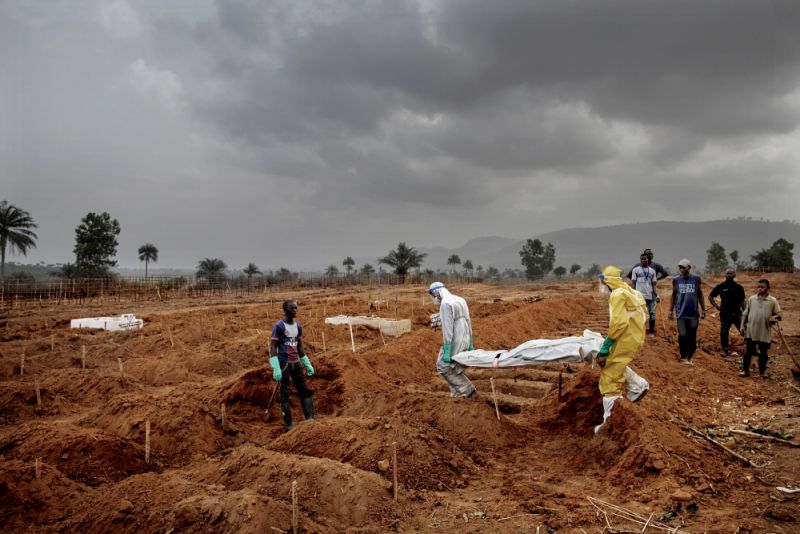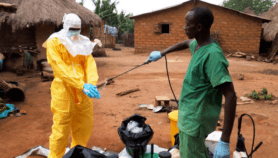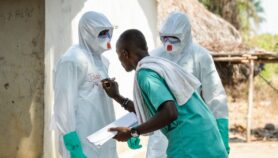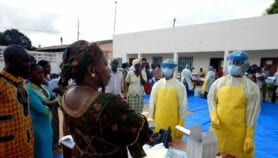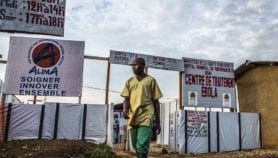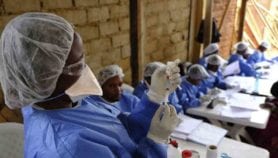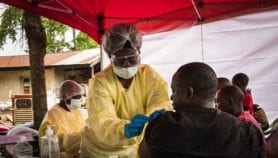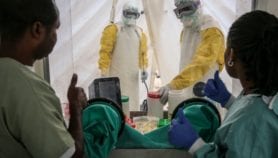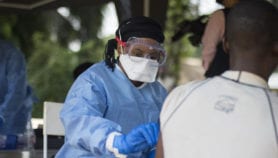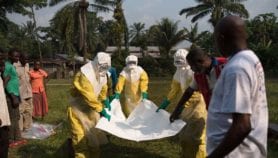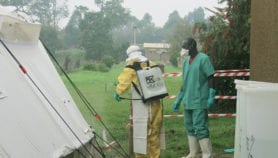Send to a friend
The details you provide on this page will not be used to send unsolicited email, and will not be sold to a 3rd party. See privacy policy.
Just as the World Health Organization (WHO) celebrates the end of the Ebola epidemic in West Africa, an academic paper says governments “bear the bulk of responsibility” for the UN body’s failures during the 2014 Ebola outbreak.
Yesterday (14 January), the WHO declared the end of the most recent outbreak in Liberia. All three affected countries in the regions — Guinea, Liberia and Sierra Leone — are now officially Ebola-free, but remain at “high risk” of flare-ups, the agency warns.
Many involved in the crisis found the WHO’s response to the epidemic in West Africa “inept, dysfunctional, even shambolic”, writes Adam Kamradt-Scott, a health security researcher at the University of Sydney, Australia.
But such bodies “are ultimately the creations of governments”, and member states that limited the organisation’s budgets and powers must share the blame, he adds in the paper published in the journal Third World Quarterly on 4 January.
“Some of the measures adopted by governments prior to the Ebola outbreak are directly responsible for the response not being what we expected.”
Adam Kamradt-Scott, University of Sydney, Australia
“Some of the measures adopted by governments prior to the Ebola outbreak are directly responsible for the response not being what we expected,” Kamradt-Scott tells SciDev.Net. In 2013, for example, member states slashed the WHO’s outbreak and crisis response budget by 51 per cent for the following two years, leading to substantial staff cuts, his study of the WHO’s Ebola response found.
After the 2003 SARS epidemic in East Asia, governments also put in place checks and balances to curb the WHO’s autonomy and its power to intervene in what they saw as domestic affairs, Kamradt-Scott says. This partly happened to shield national reputations and economies from the impact of possible public alerts and travel restrictions.
Brice de le Vingne, director of operations at medical charity Médecins Sans Frontières — which repeatedly slammed the WHO’s slow response to the Ebola outbreak — agrees with Kamradt-Scott that national governments are at the end of the “accountability chain”.
“Member states are responsible for the results, the way the WHO works and the budget cuts,” says de le Vingne. “But that doesn’t explain everything” and does not exonerate the organisation, he adds.
De le Vingne points out that scientific research became an integral part of ground operations during the epidemic, as the unprecedented outbreak offered a rare opportunity to study the Ebola virus and potential vaccines. “This is one of the lessons we are drawing,” he says. “We need to invest a lot more in scientific research to build research projects with partners in this kind of emergency setting.”
Reforms are under way to ensure the WHO is better equipped to face the next health emergency, says a WHO spokesperson.
At the organisation’s World Health Assembly last year, member states agreed to an eight per cent rise in the WHO’s overall budget, worth US$4.4 billion for 2016-17. The organisation is also working to “become a fully operational emergency organisation”, says the spokesperson.
The list of reforms includes a US$100 million contingency fund to respond to pandemics and building a “framework for research and development preparedness and capacity during outbreaks or emergencies”.But de le Vingne says this new focus on “hands-on” activities on the ground should not happen to the detriment of the WHO’s traditional roles: setting norms, providing technical assistance and coordinating international efforts.
Kamradt-Scott adds that instead of transforming the WHO completely, the onus should be on member states to build strong health systems so they can detect and contain disease outbreaks in the first place. That goal would be “very achievable” if donors such as the European Union joined the United States and put enough money on the table for developing countries, he says.
References
Adam Kamradt-Scott WHO’s to blame? The World Health Organization and the 2014 Ebola outbreak in West Africa (Third World Quarterly, 4 January 2016)


